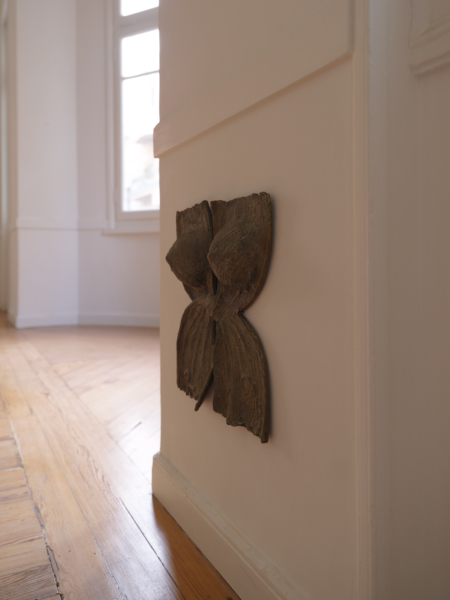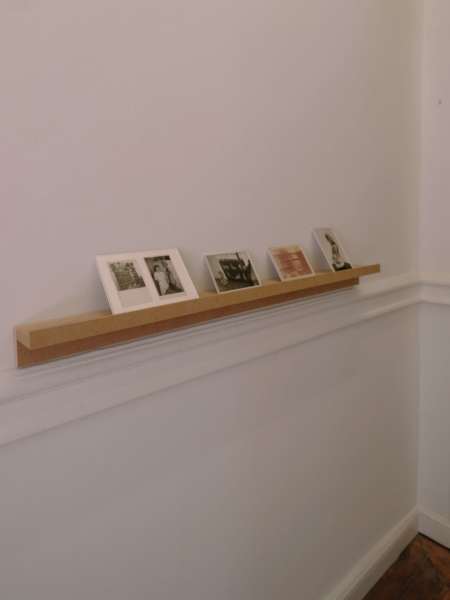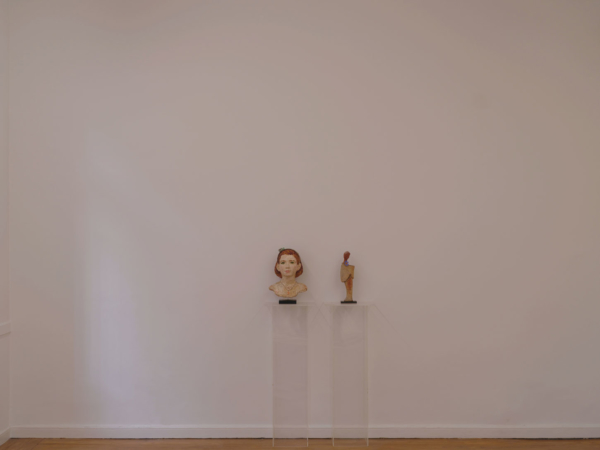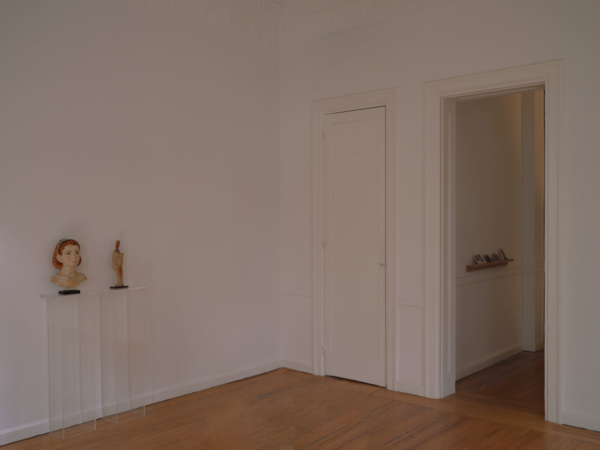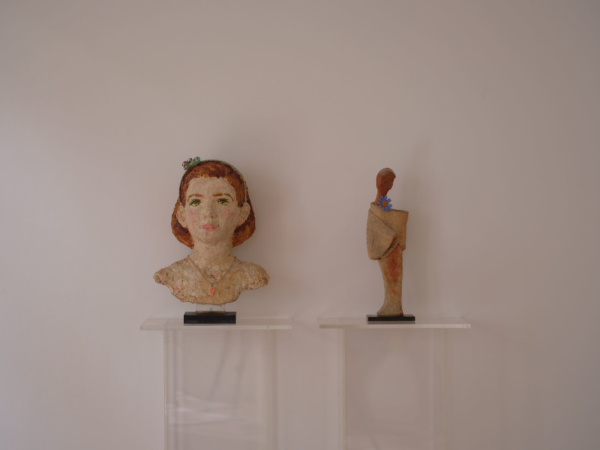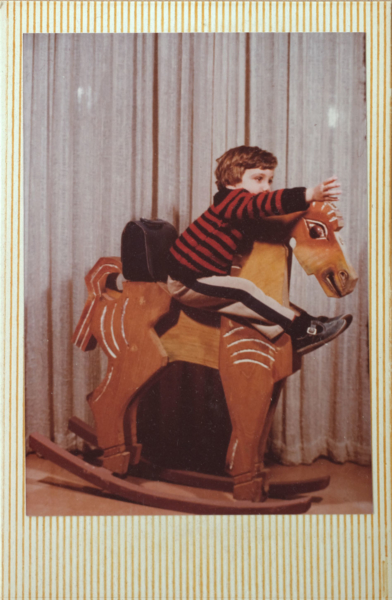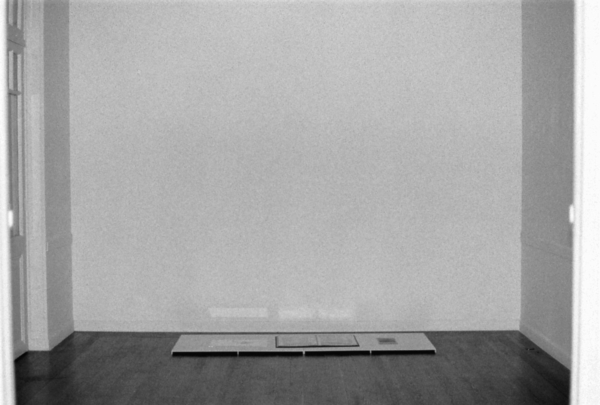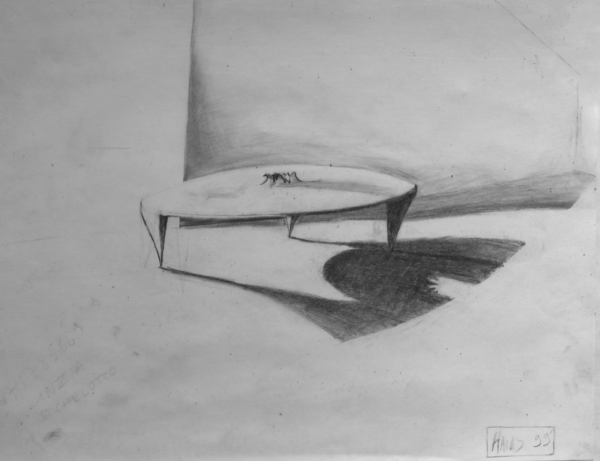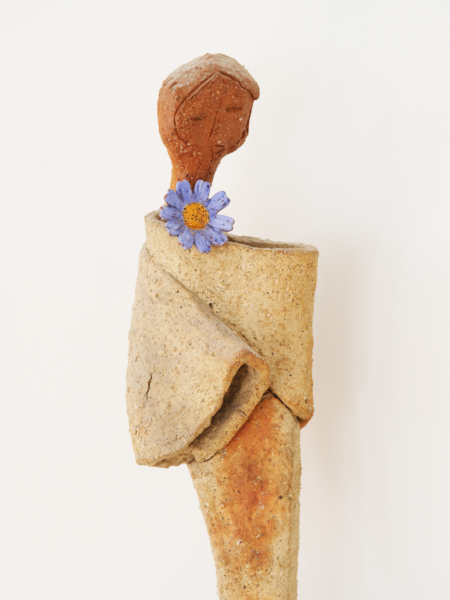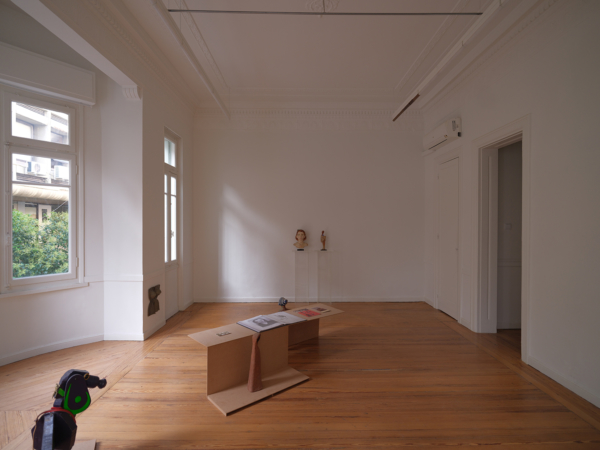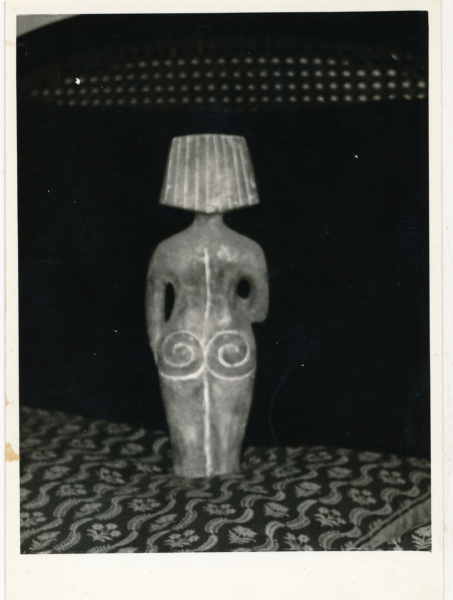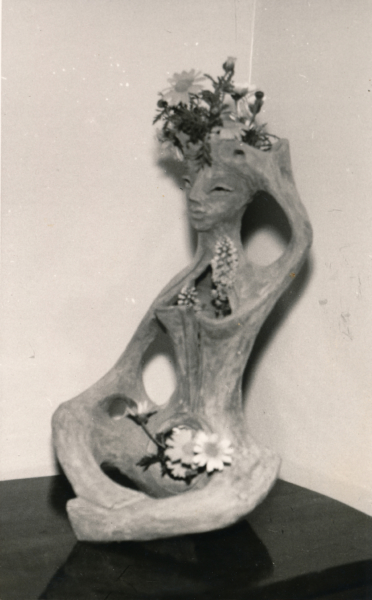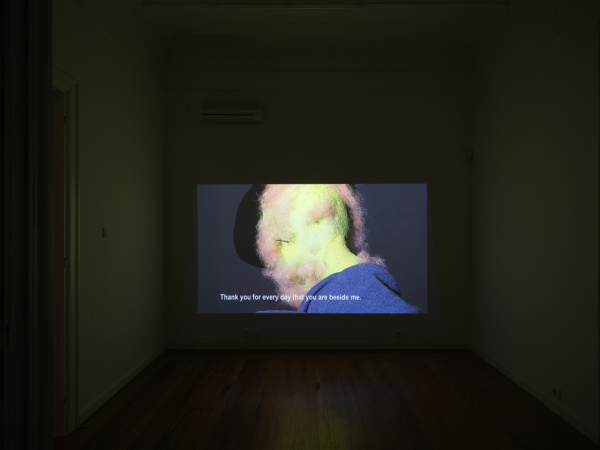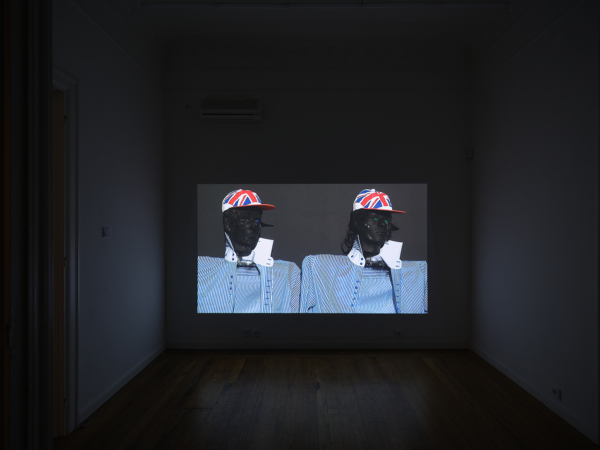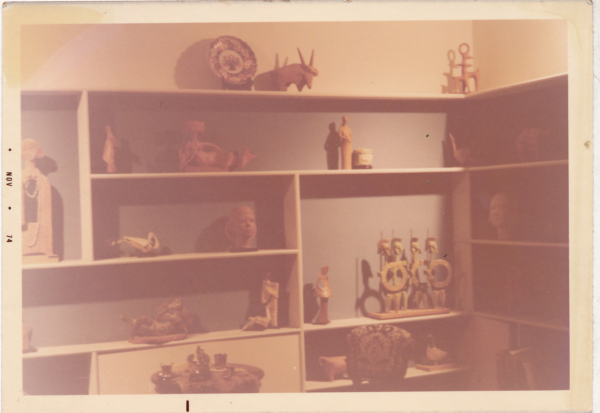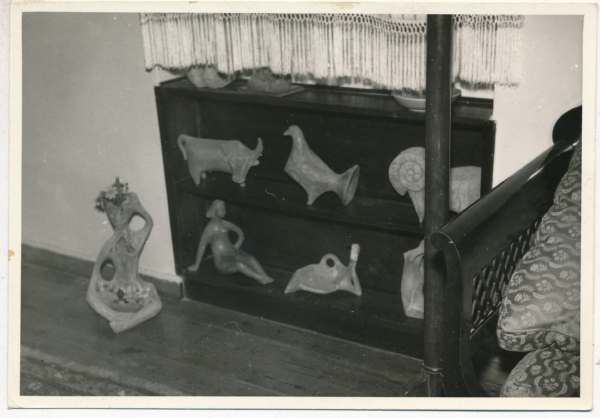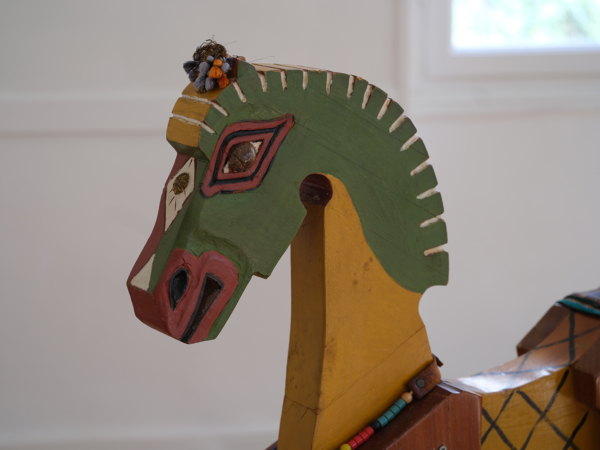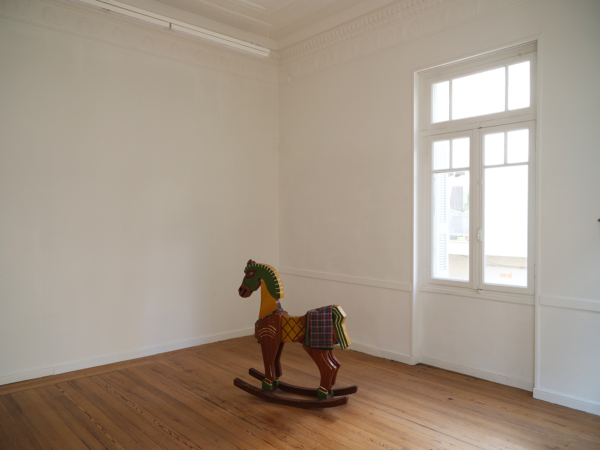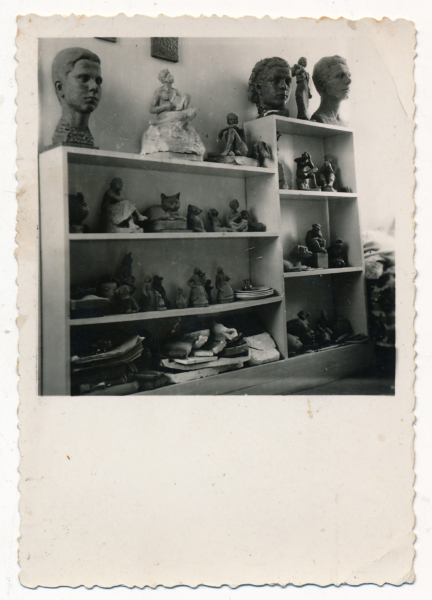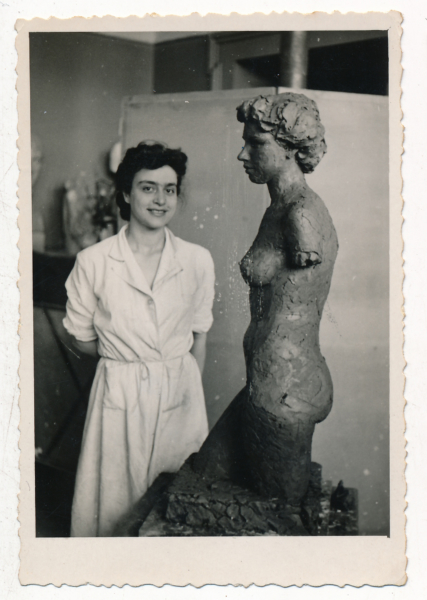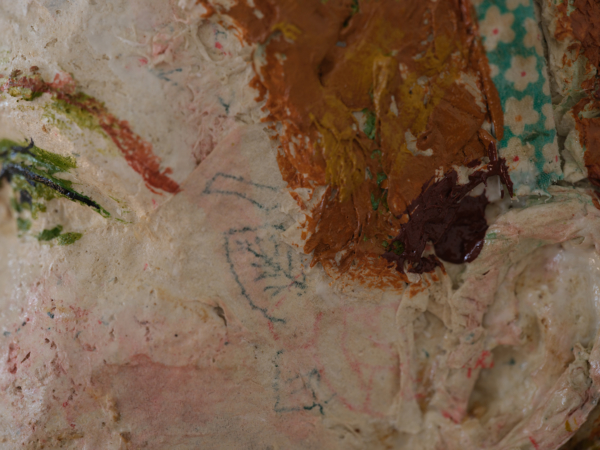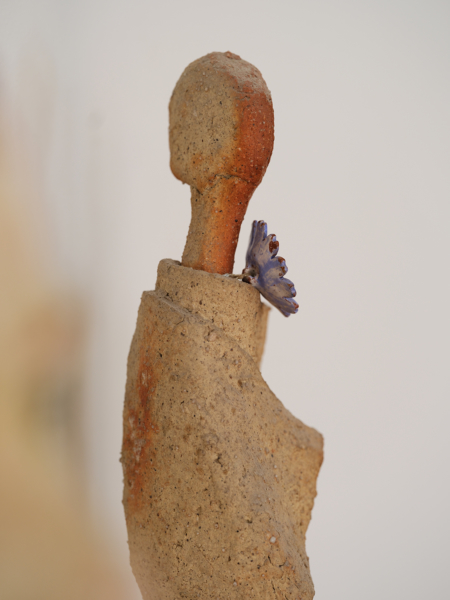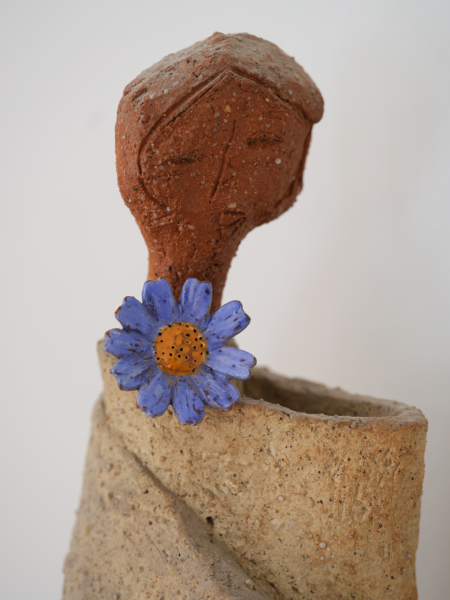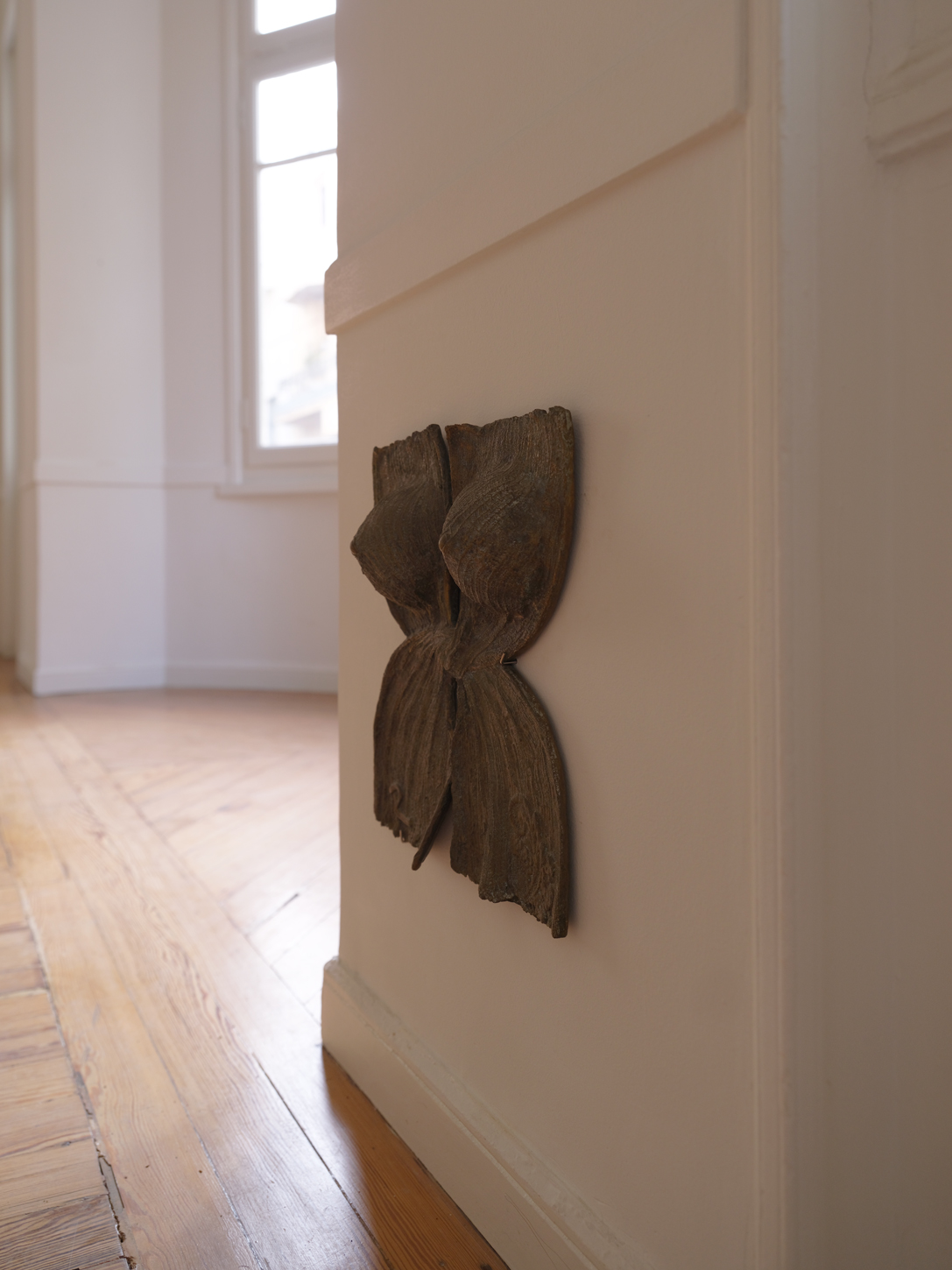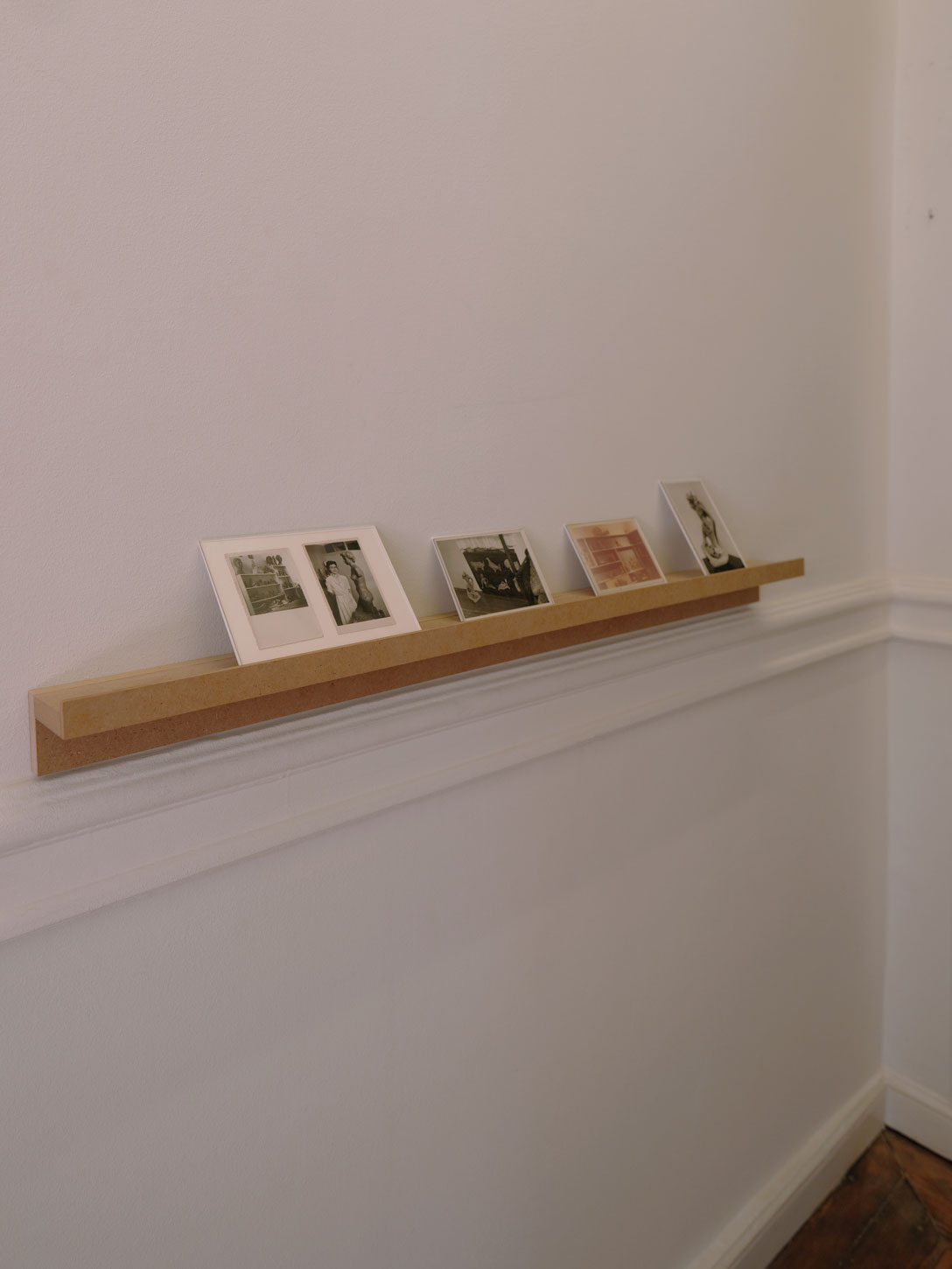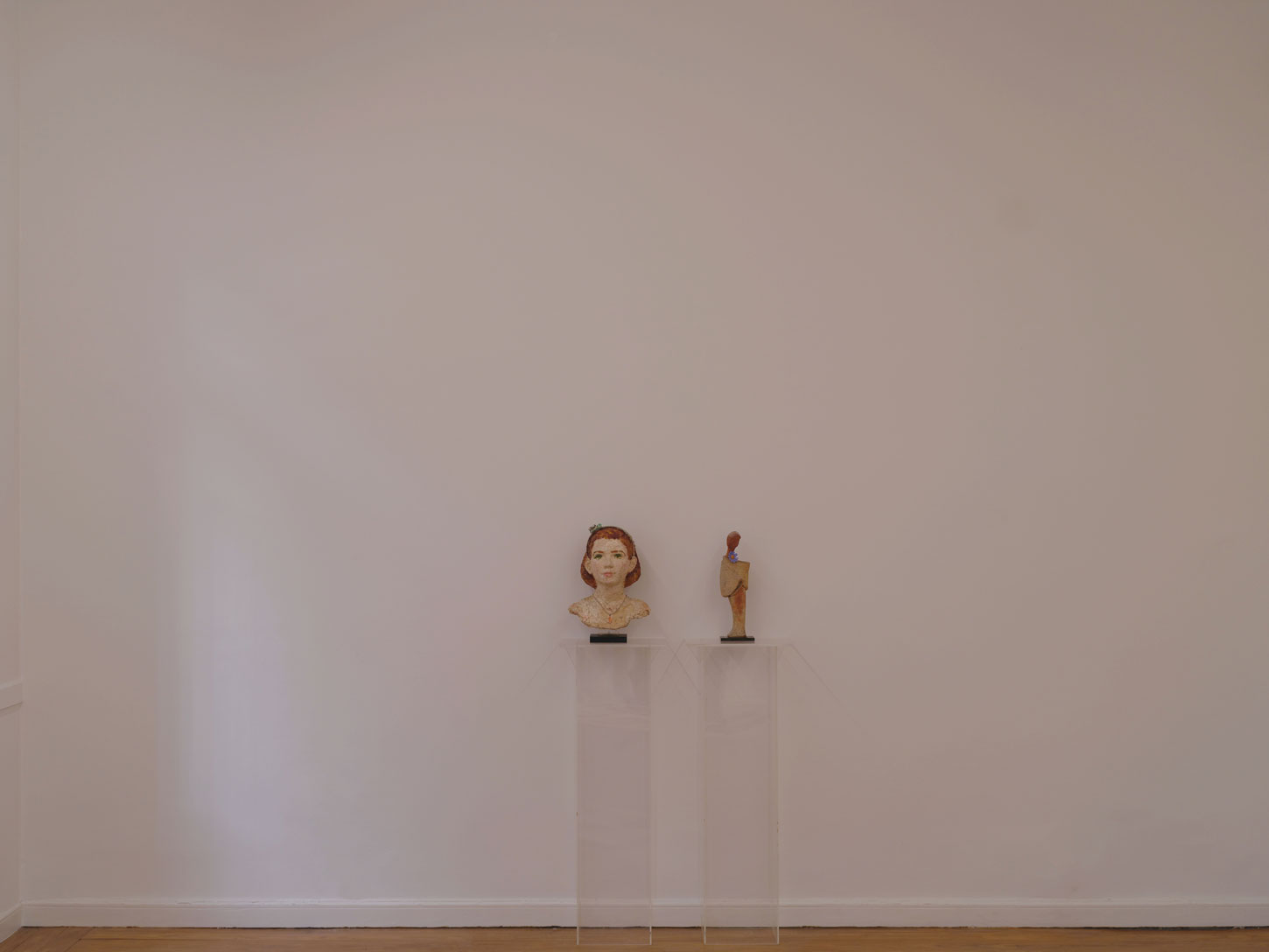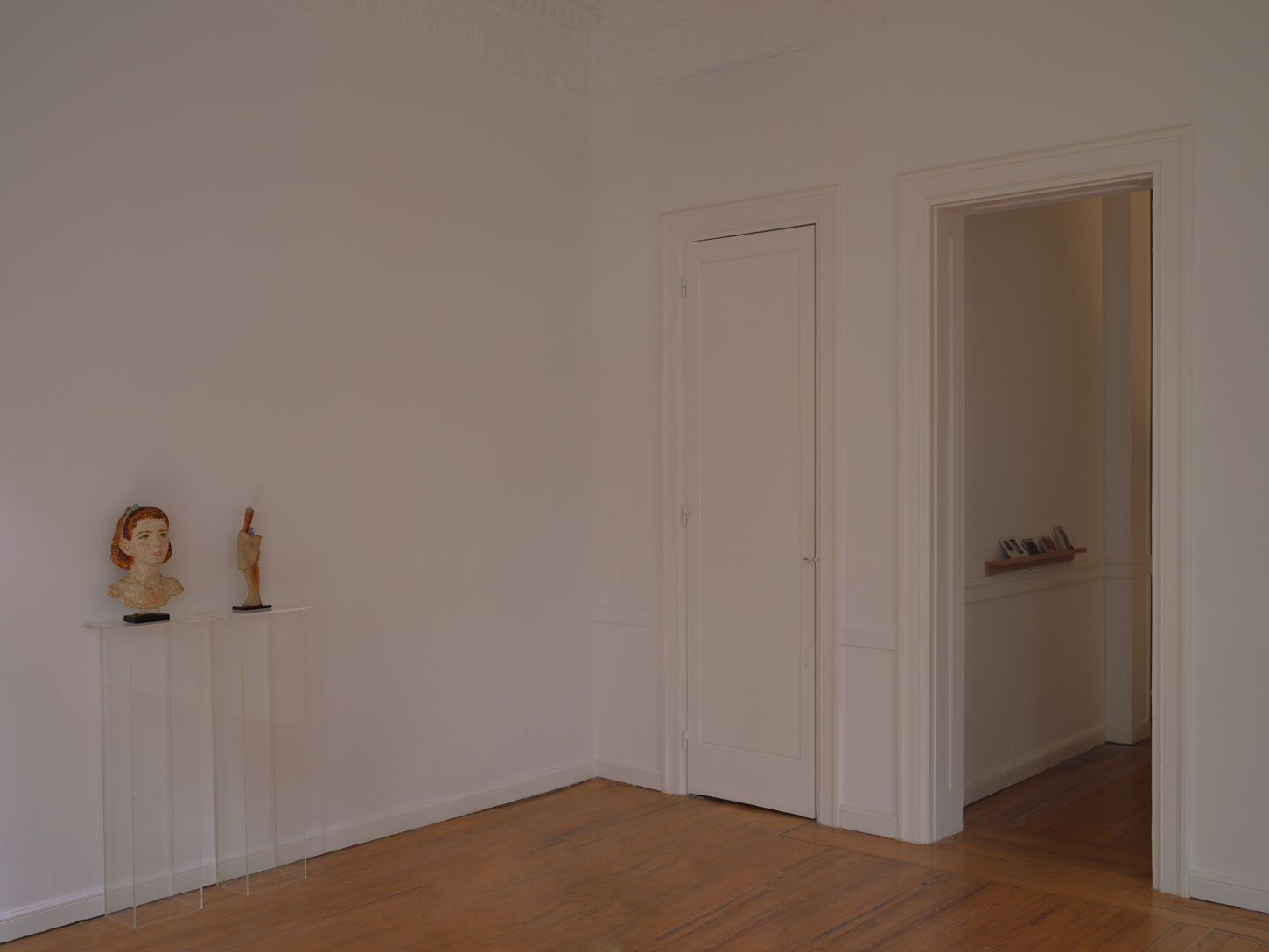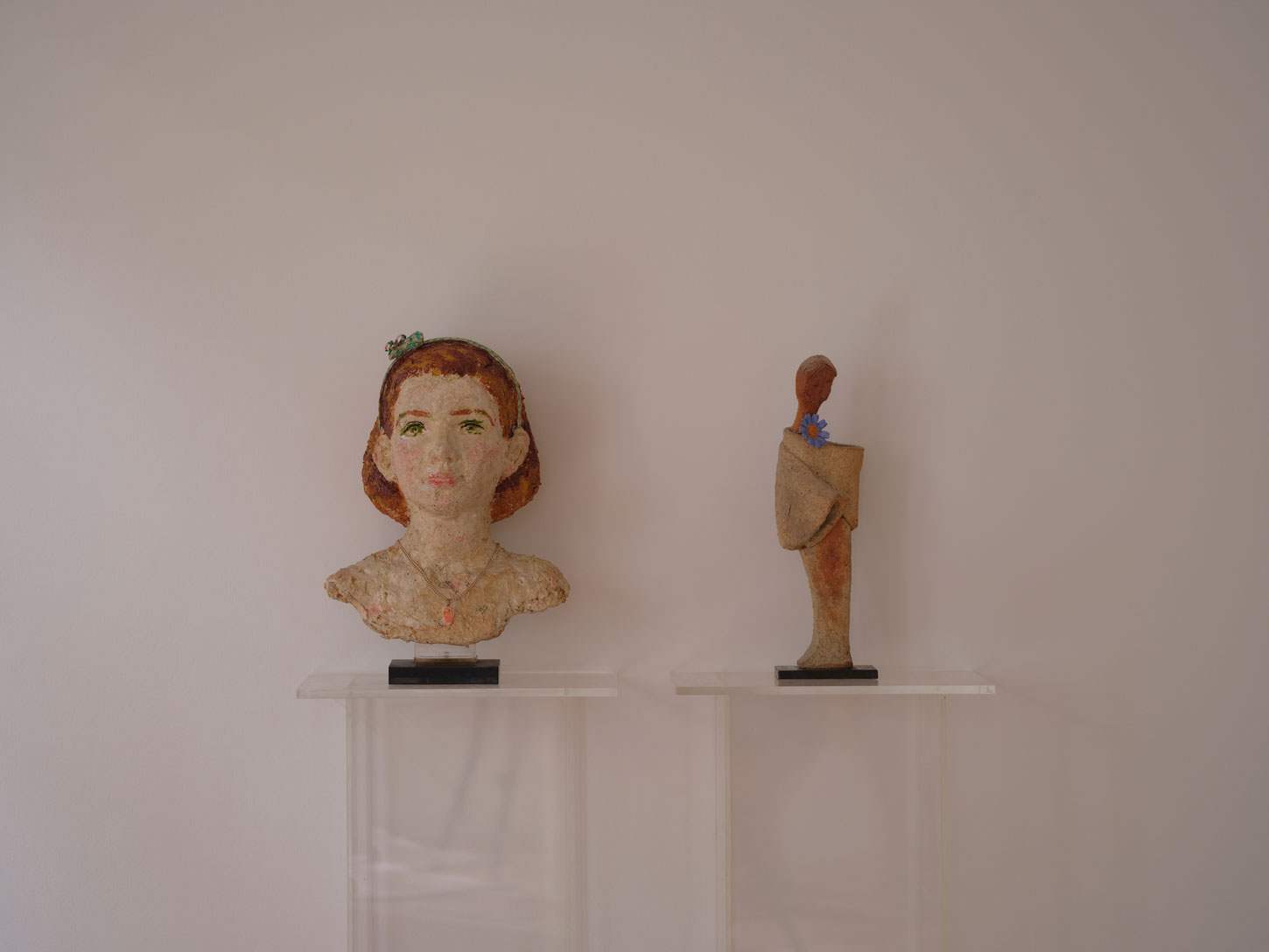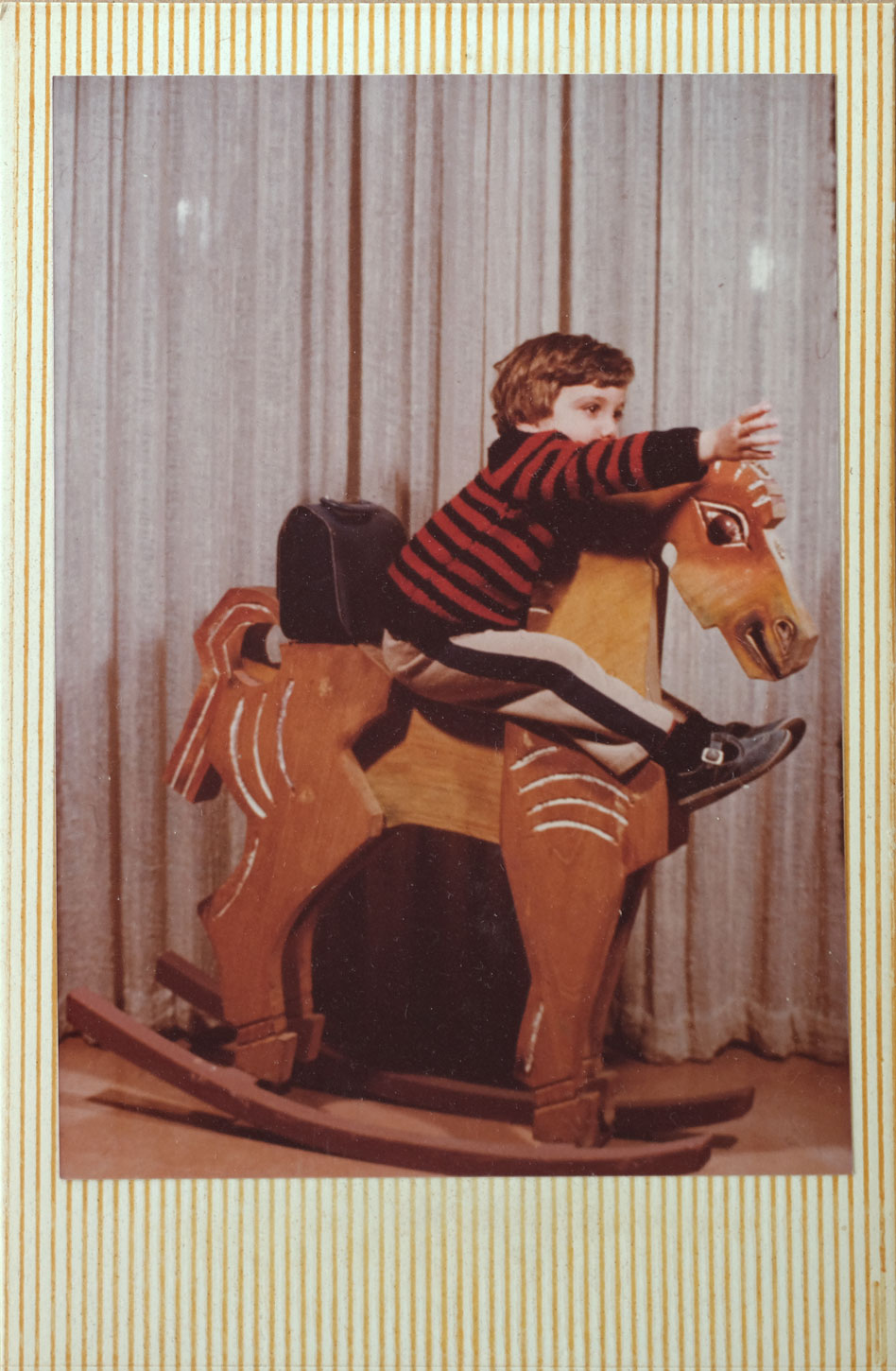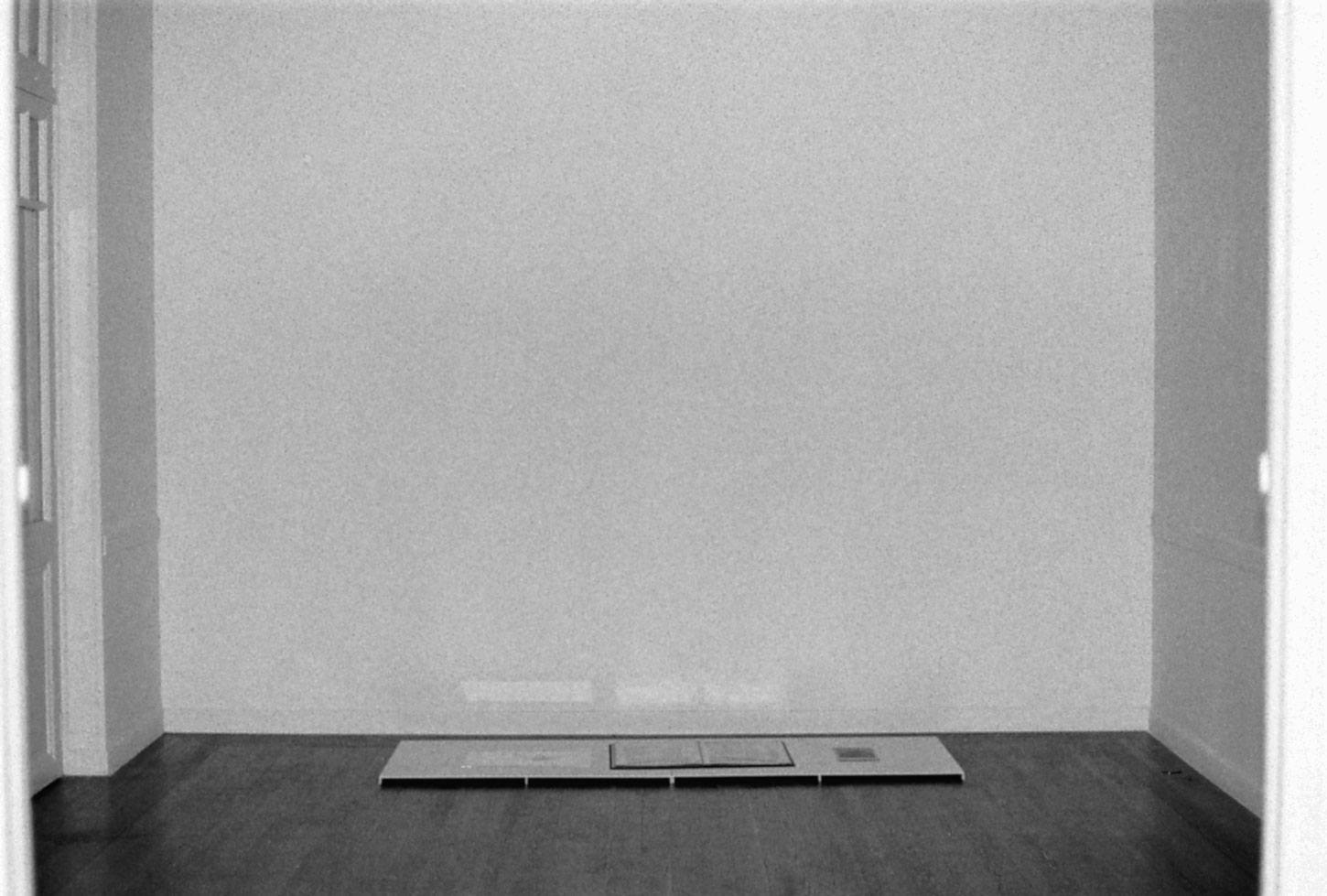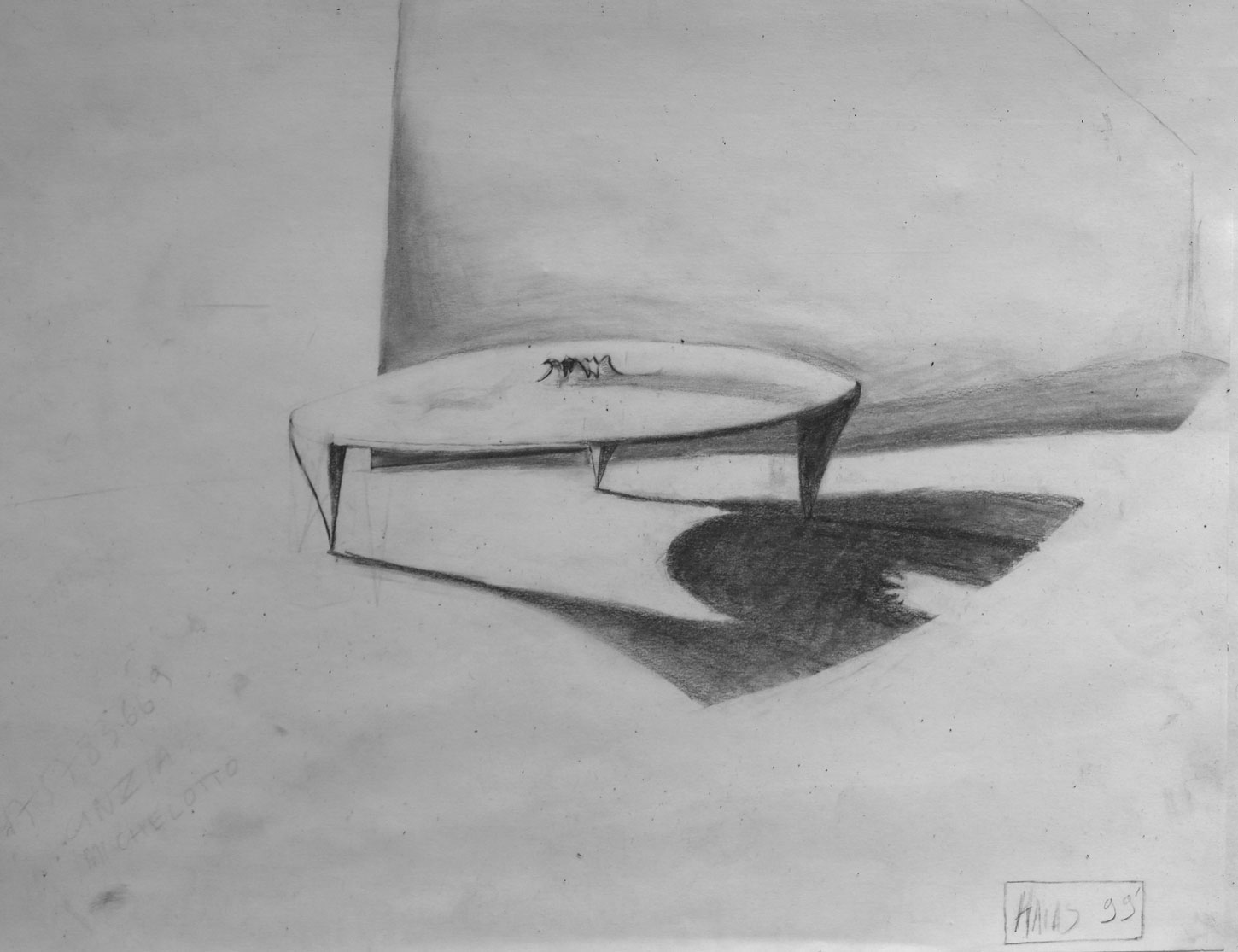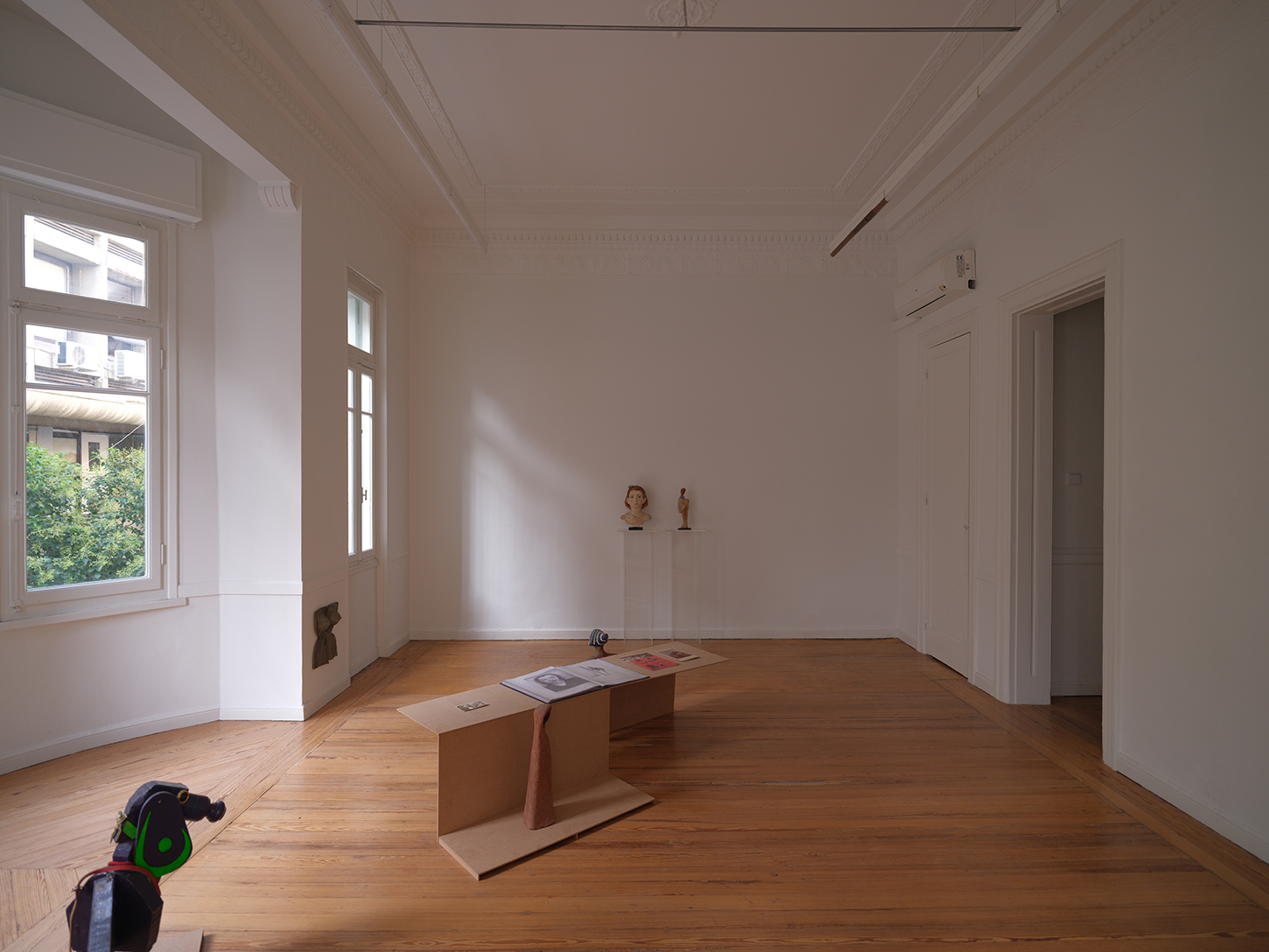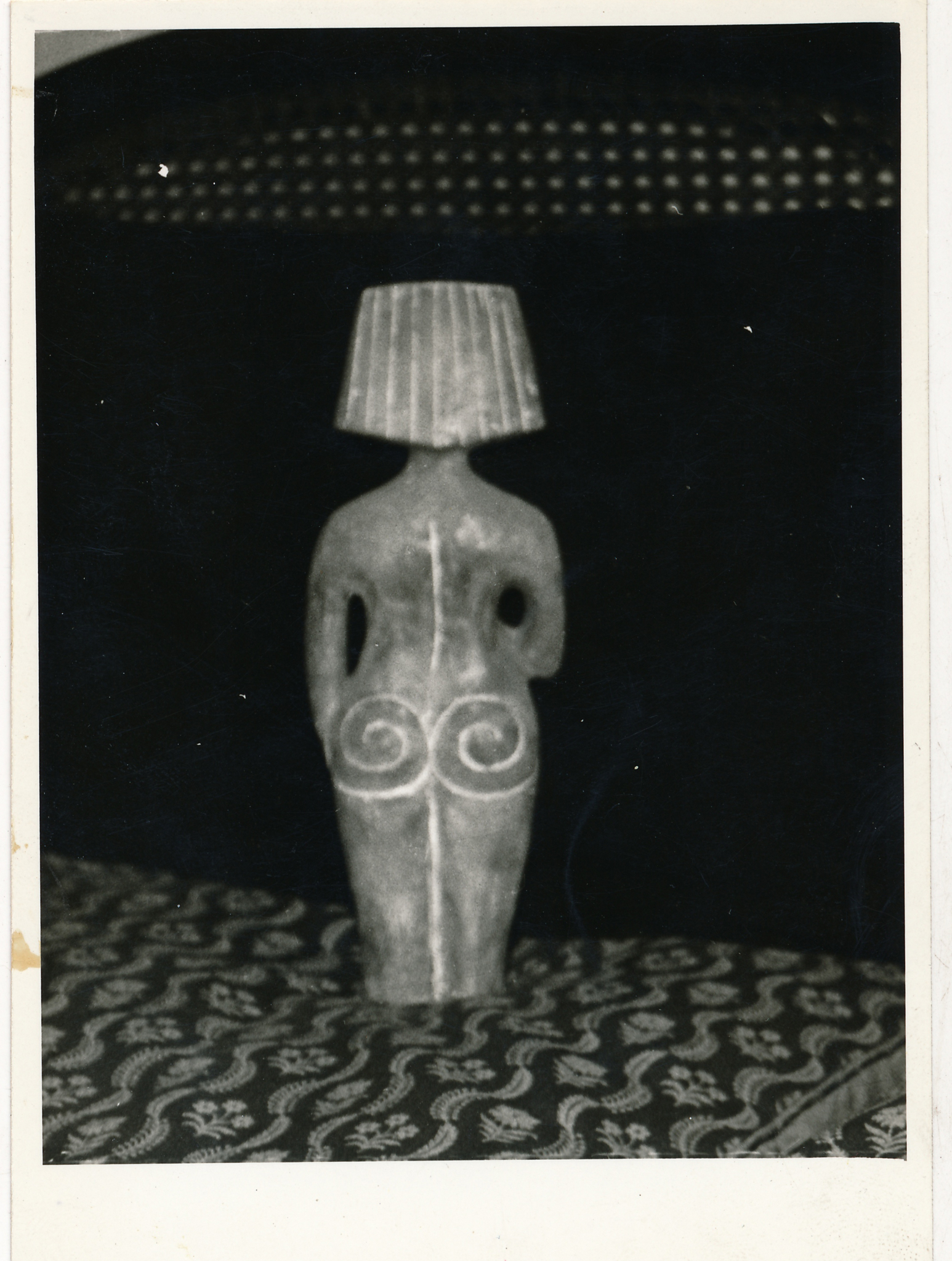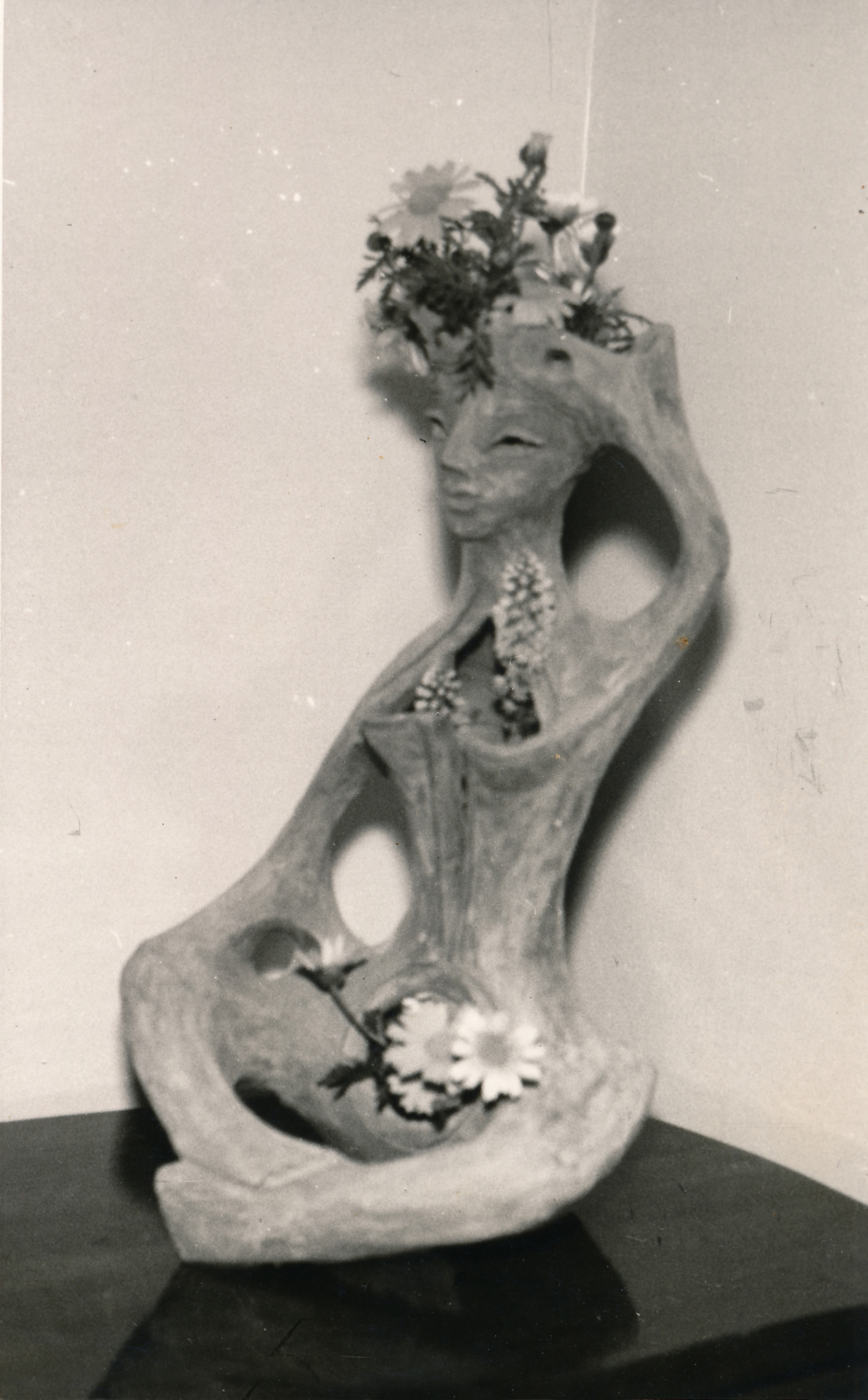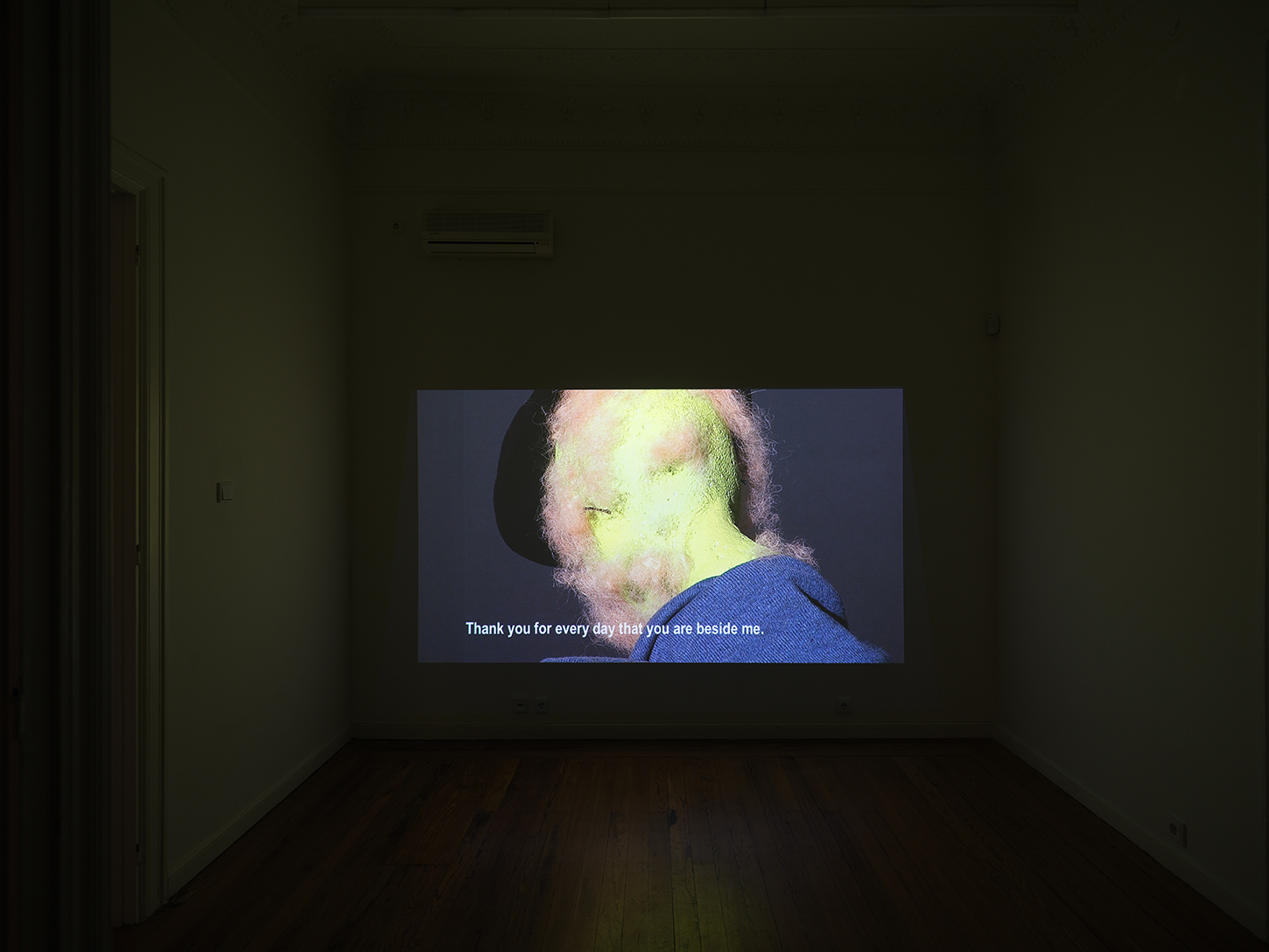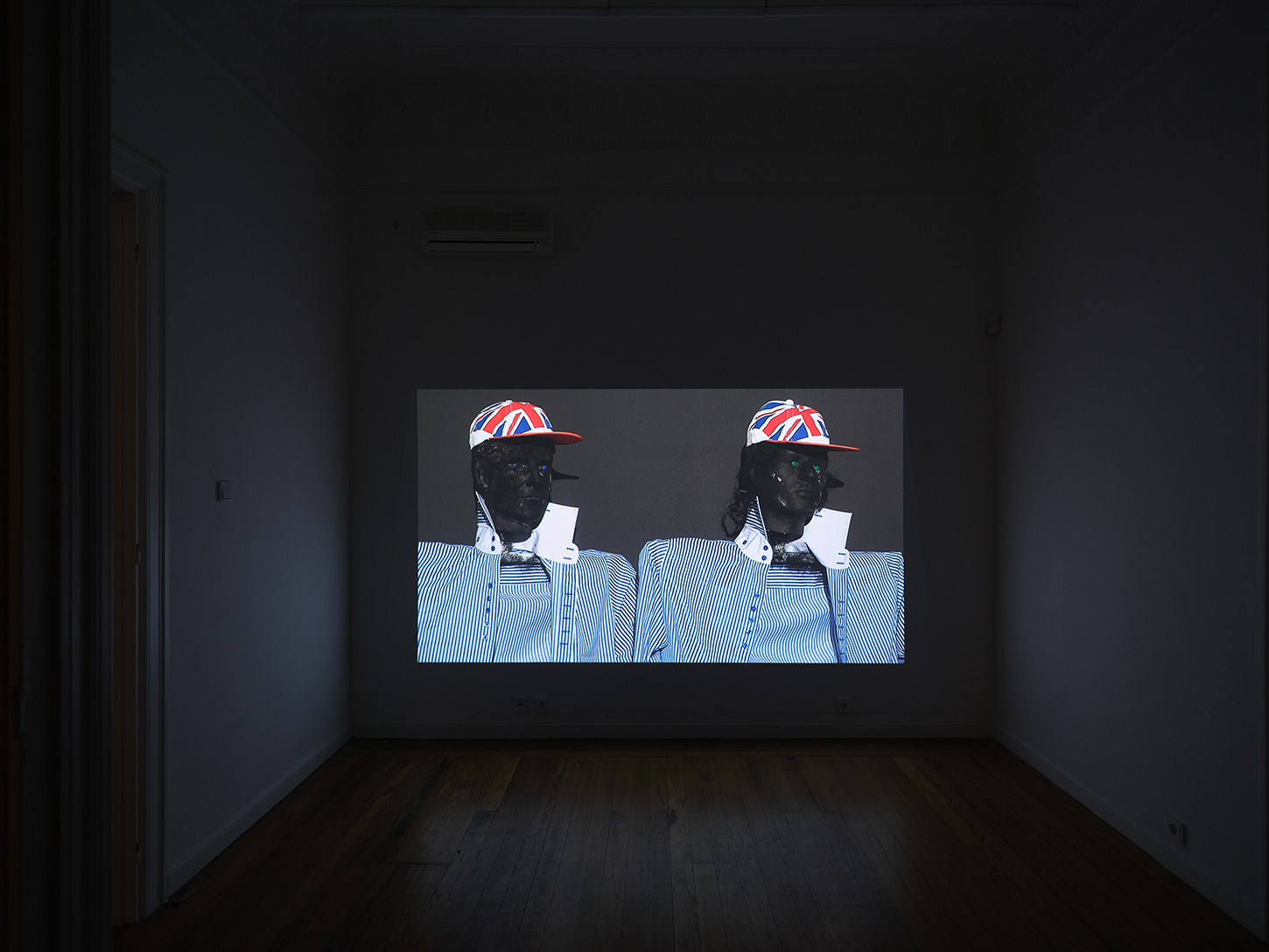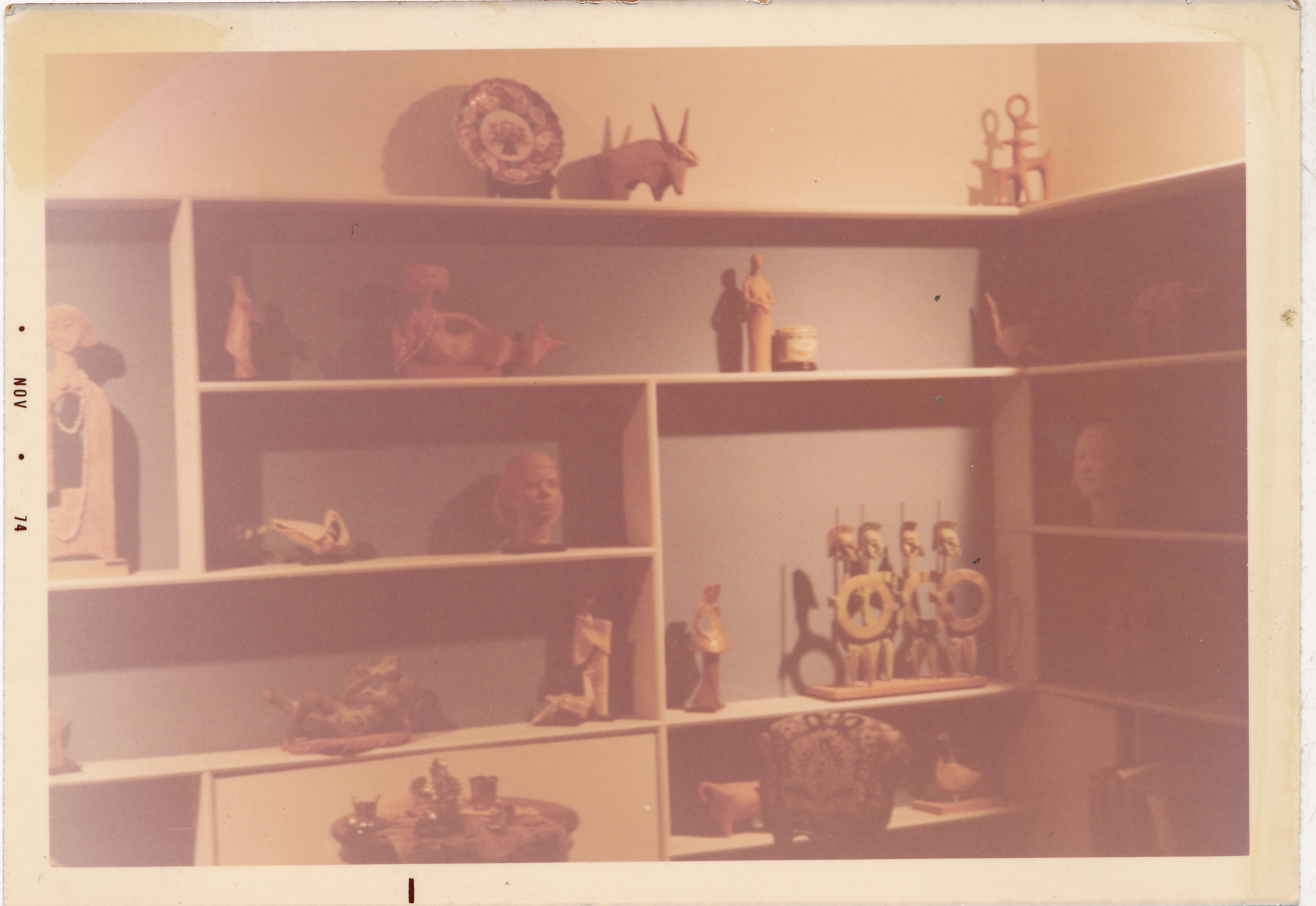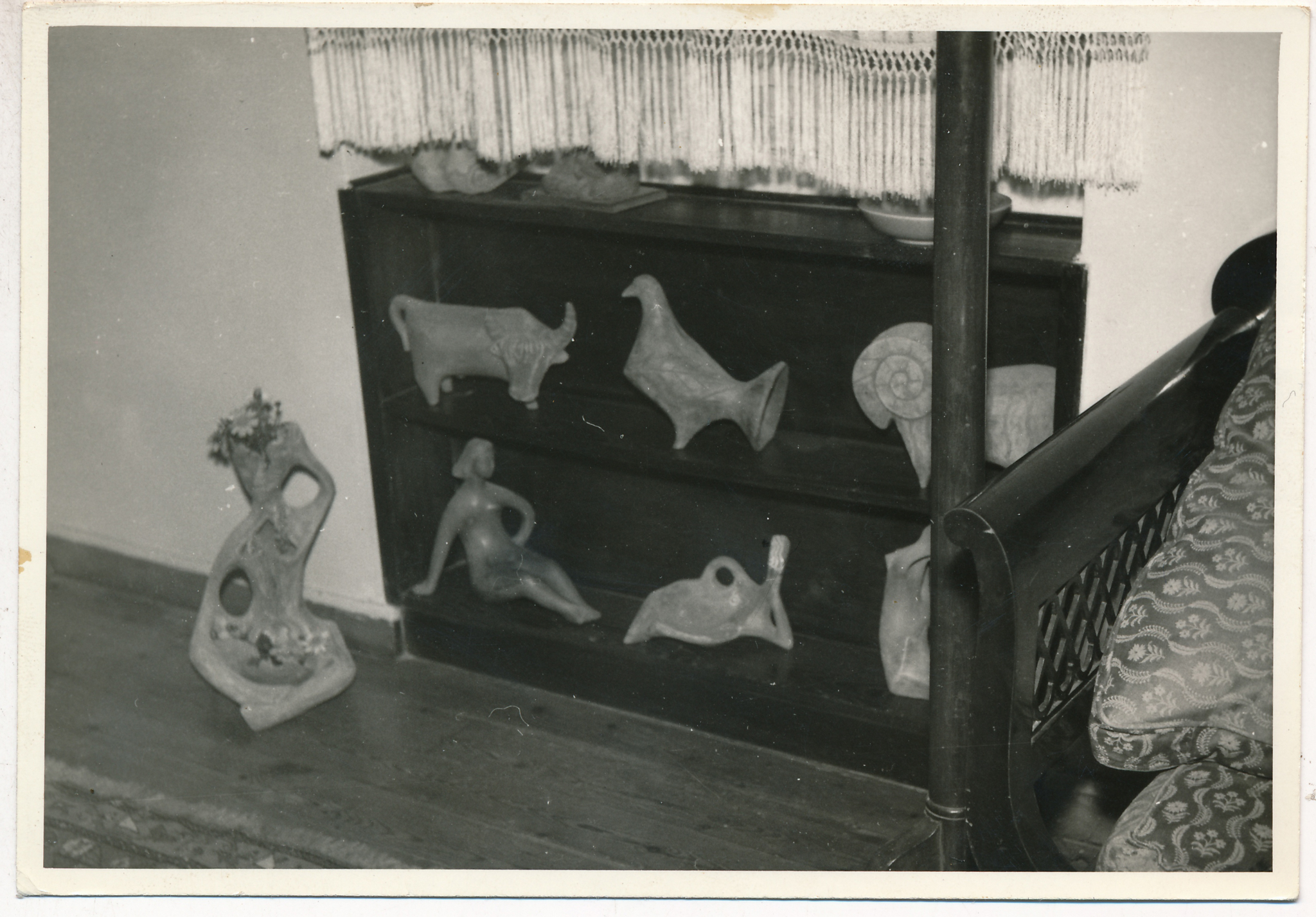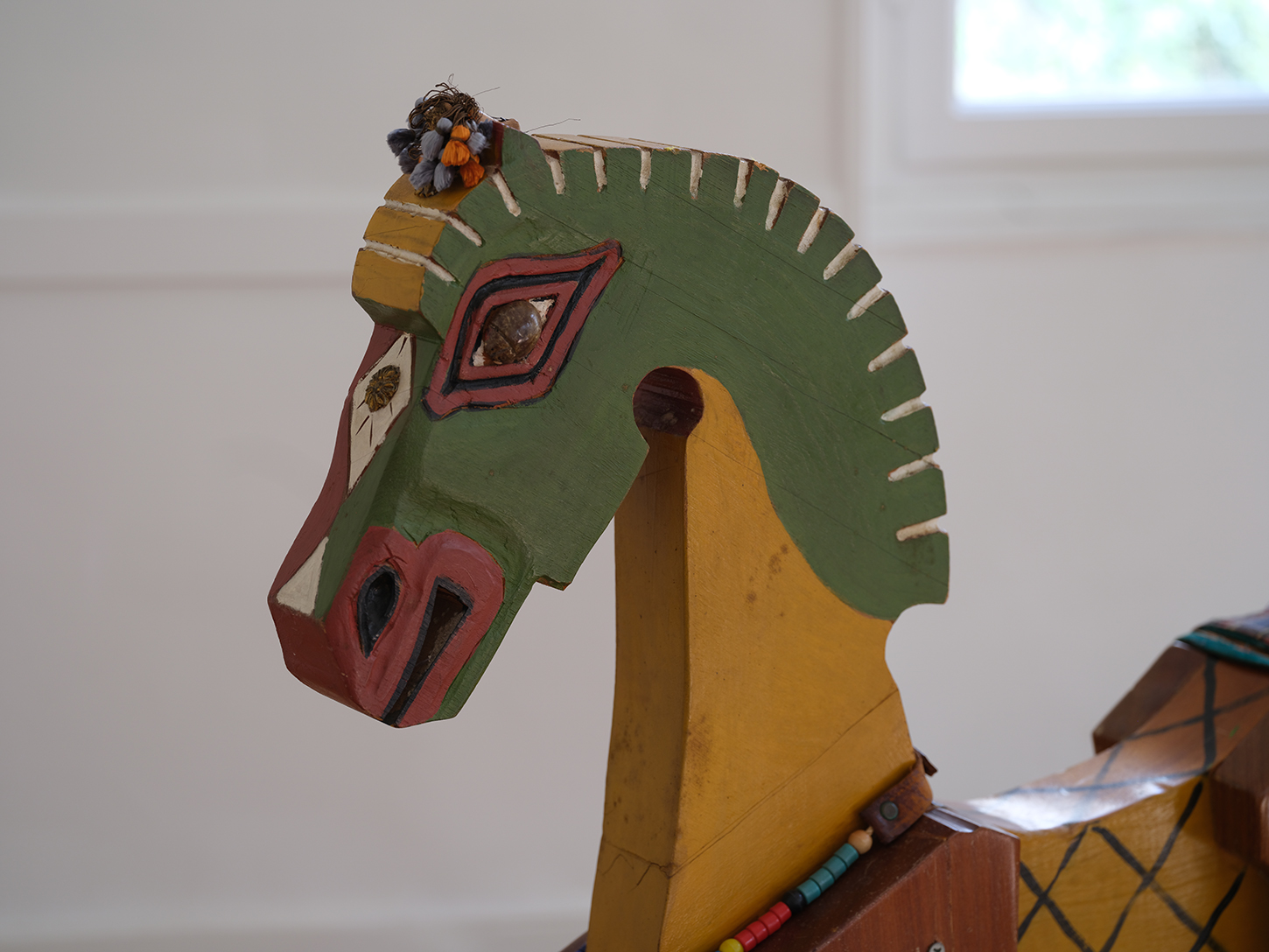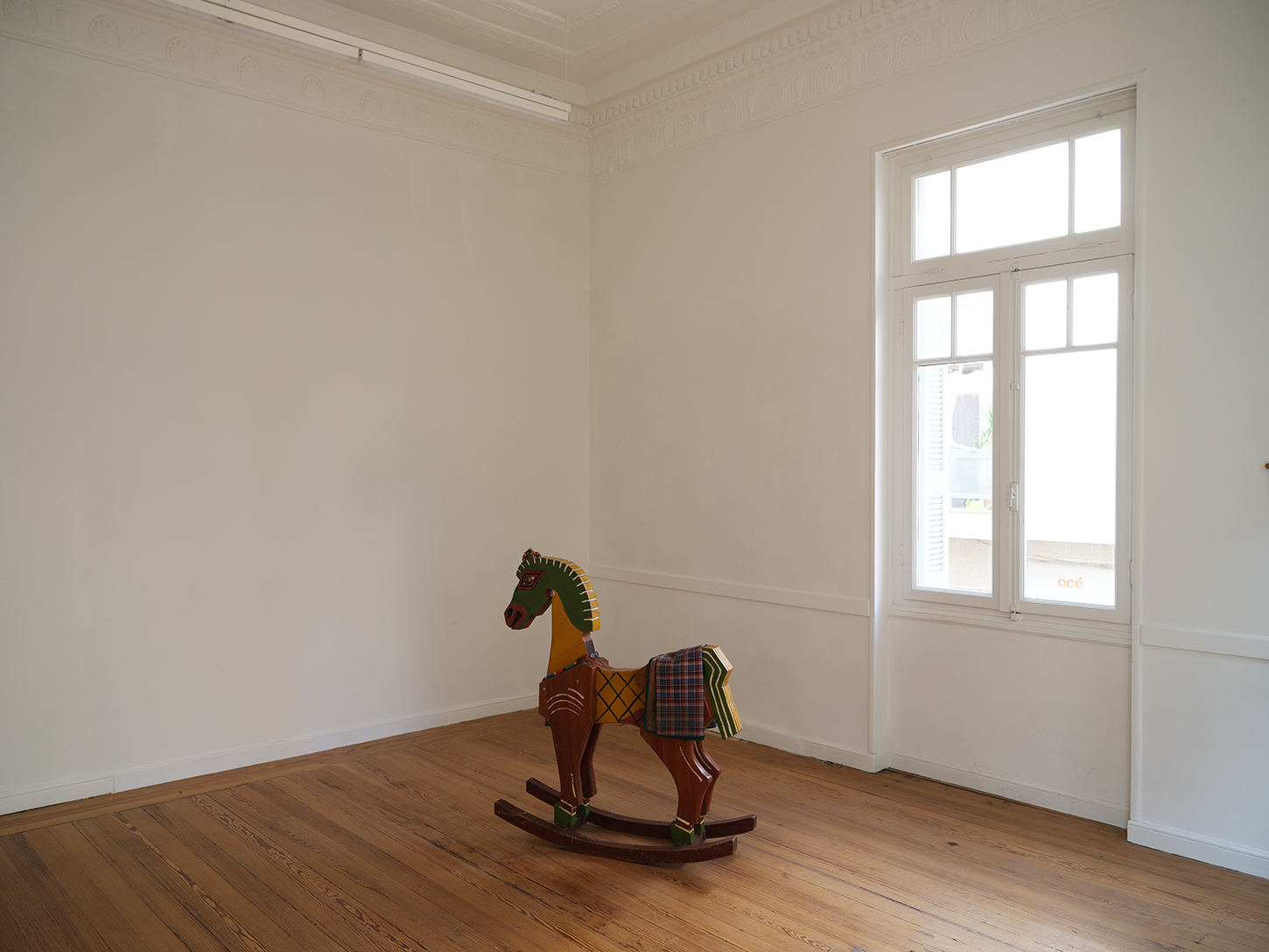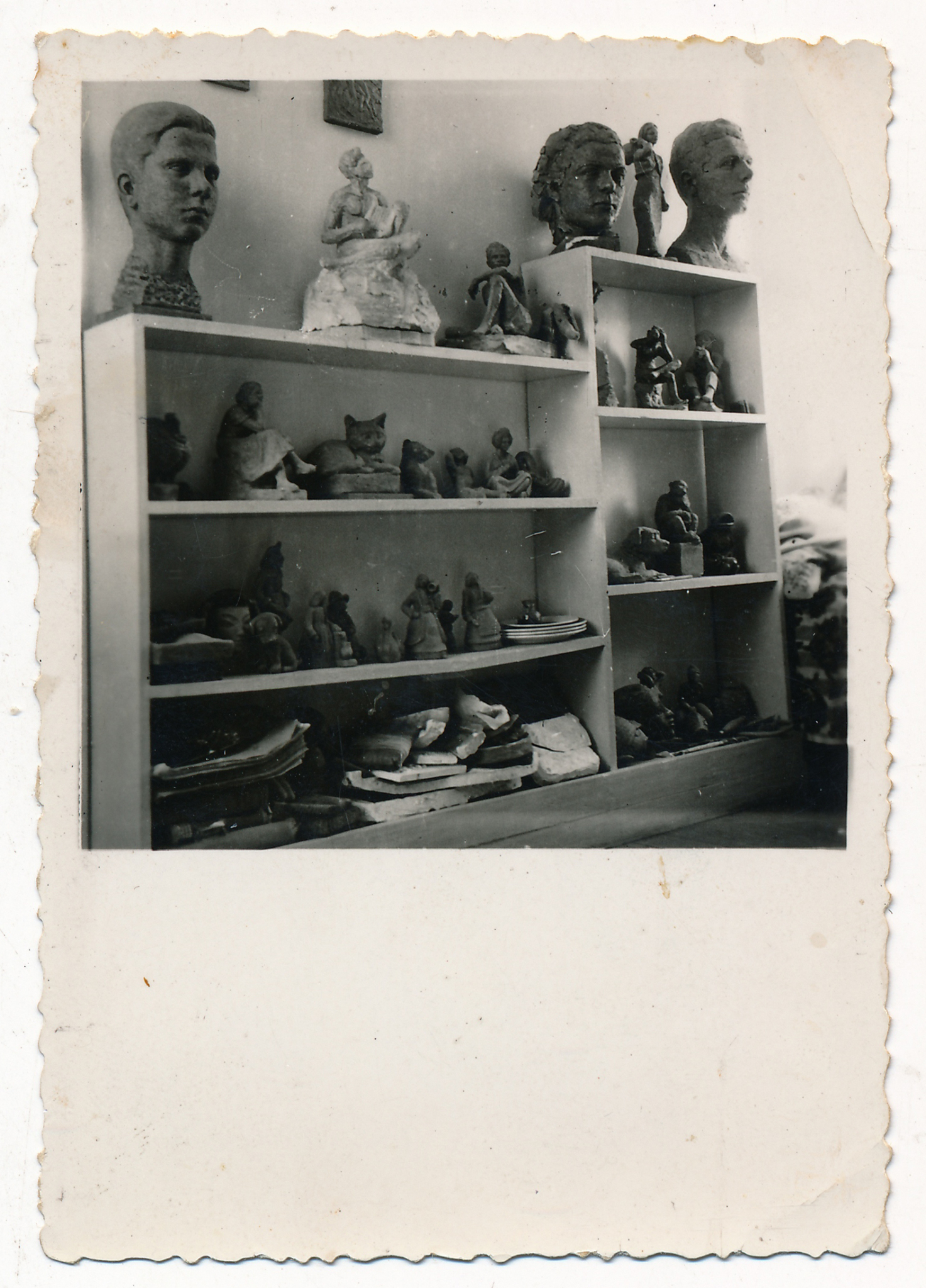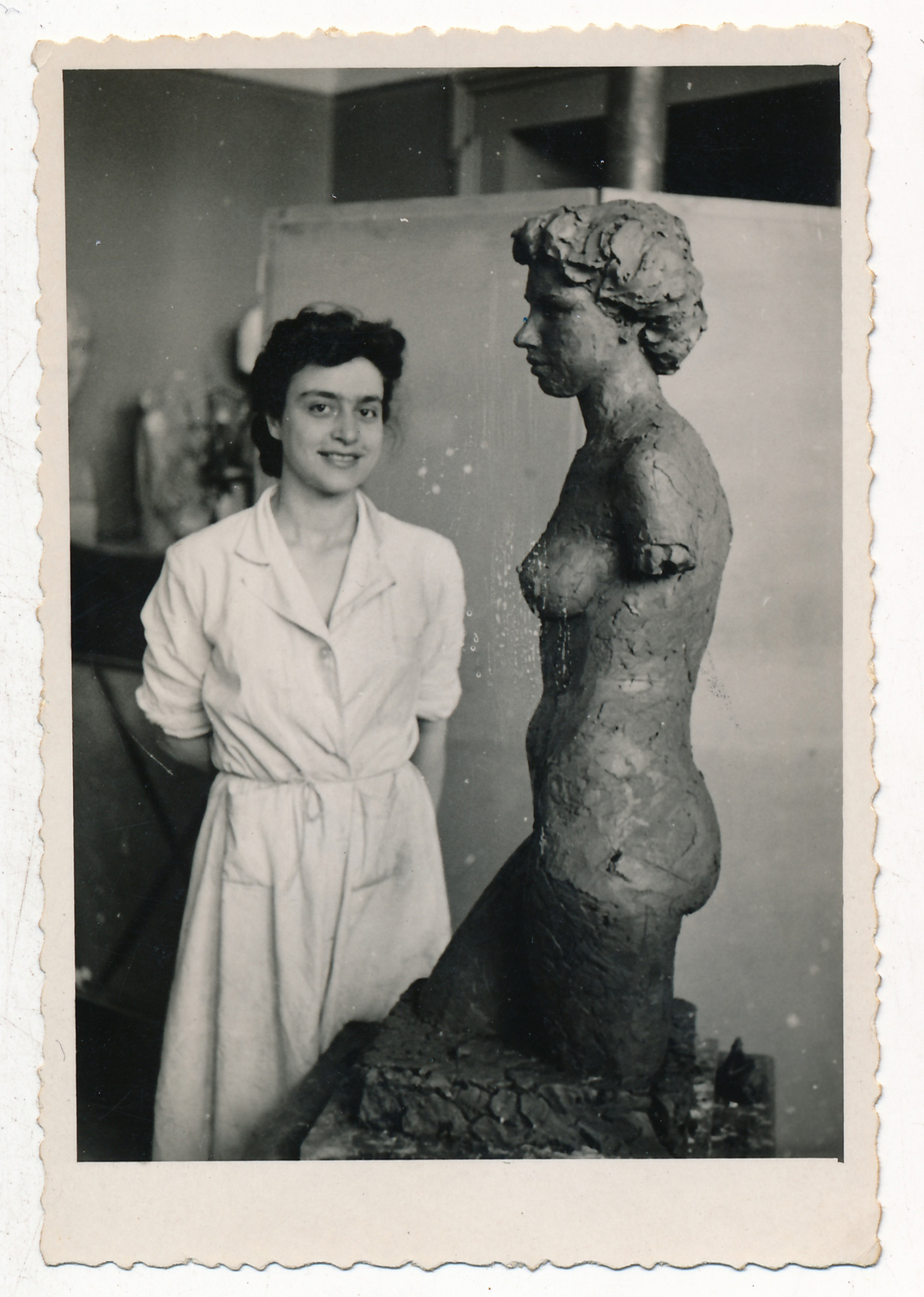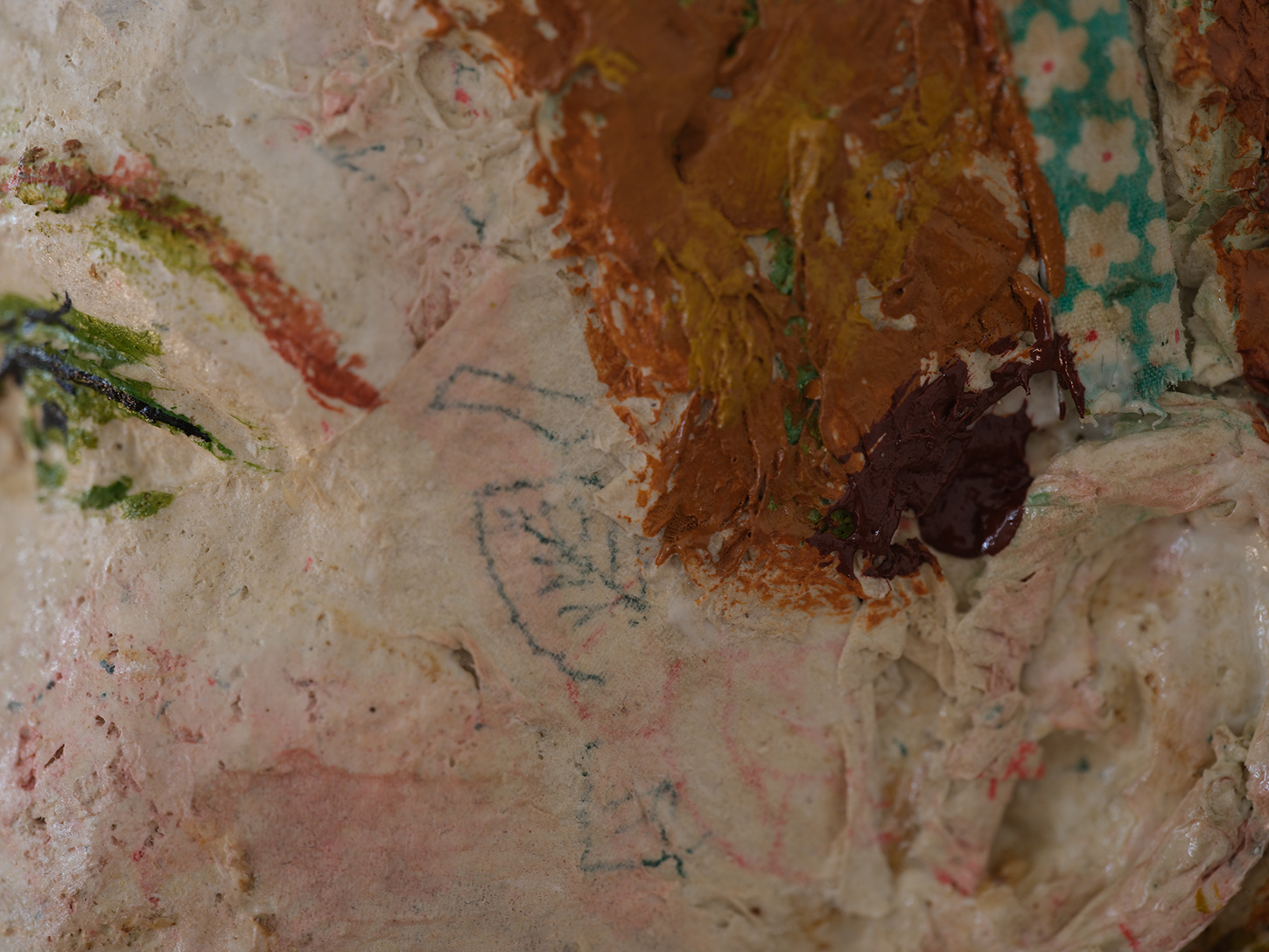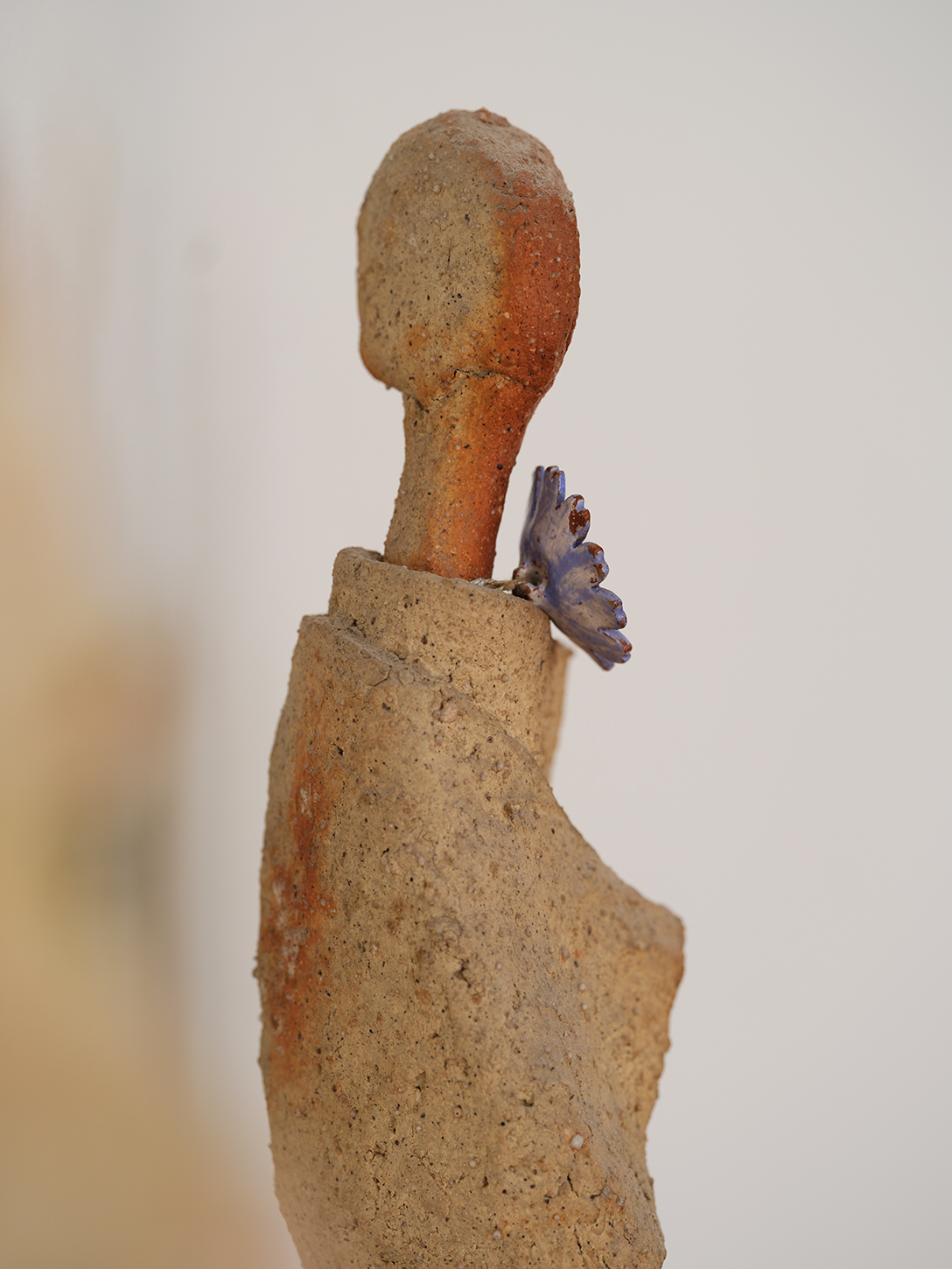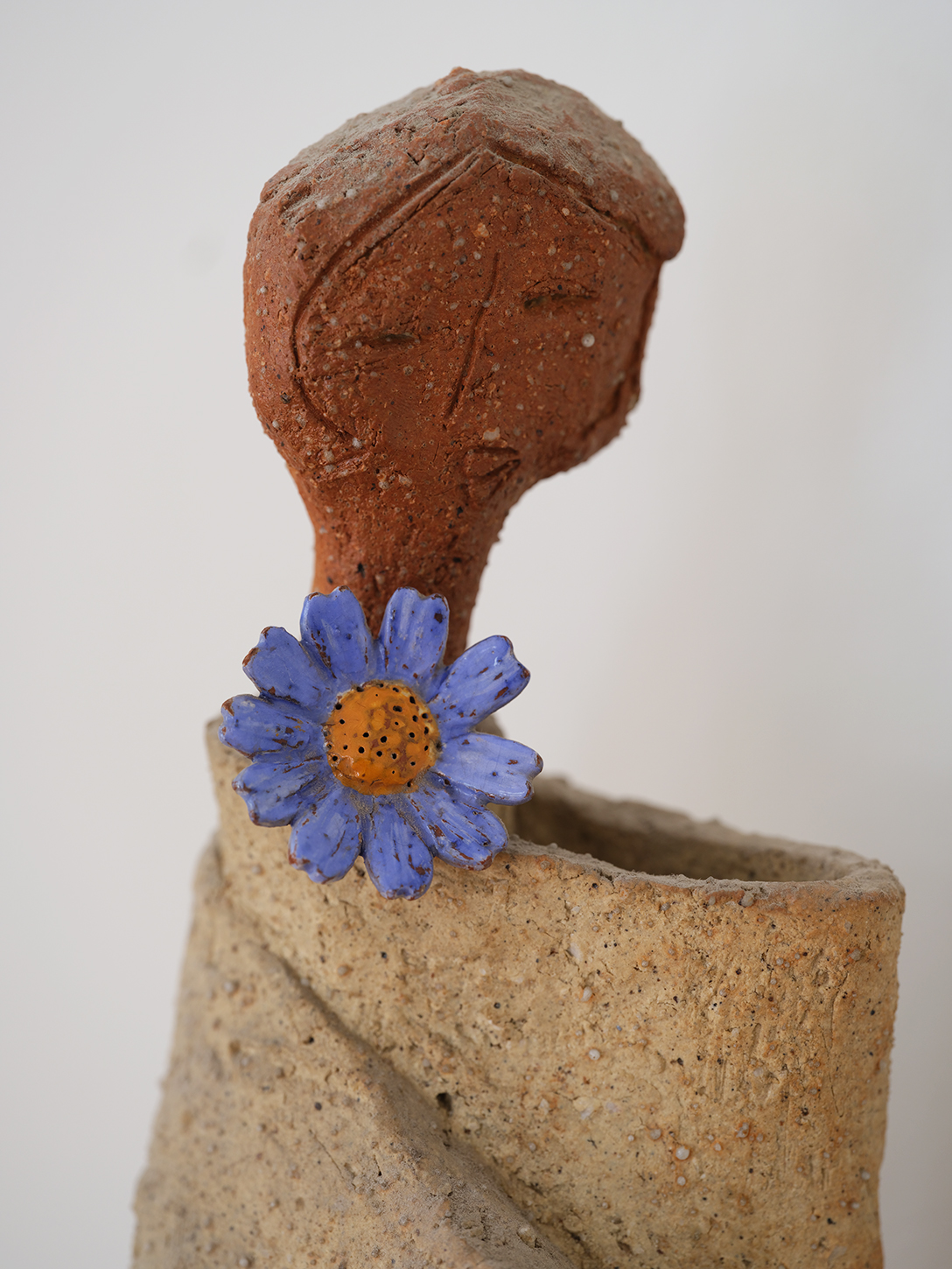This exhibition is dedicated to freeing gestures in art and the idiosyncratic forms that these produce. Tabletop candleholders stuck on lifesize wooden figures years after their making, busts accessorized with plastic jewelry, sculptures handed over to grandchildren to paint on, sculptures made to play with or to sit on, an everchanging array of forms, approaches, materials, and aesthetic proclivities –Rosa Iliou’s world of art offers itself tenderly as playground.
Critics have described her artworks as ‘ornaments,’ ‘decorative,’ and philotechnemata (the byproduct of someone’s love of art), ‘invested in phenomena and situations of minor importance, considered sympathetically and tenderly,’ ‘fermented,’ and occasionally ‘shaped to practical ends’. One critic has spoken about formal elements, which relax or unwind the works.
The hundreds of artworks and collected items (talismans, and other objects) Iliou left behind are to date in her former residence in Palaio Faliro, including custom-made reliefs installed in the communal corridors and handles in the apartments’ and elevator doors.
In Das Loch [The Hole], 2010 by Belgian artist duo Jos de Gruyter and Harald Thys, three puppets are swayed by the artists: the painter Johannes (1947-2010), his wife Hildegard, and their fast-car, tech-obsessed friend Fritz. The video features an abstract painting attributed to Johannes, which the artists bought from a market. In exhibitions since (Optimundus, In the Realm of the Solar Eclipse, and more) the artists have exhibited hundreds more artworks by Johannes, though actually made by them, and occasionally by other living artists.
Two drawings and an original comic strip by furniture designer and Iliou’s grandson Ilias Lefas (pictured riding Iliou’s DARIS, 1980) are included in the show — a design for a table for Wunderkammer studio, a portrait of a friend, and an incendiary story of a character called Sobrak (a play on the greek word ‘sovrako’ meaning briefs or boxers).
